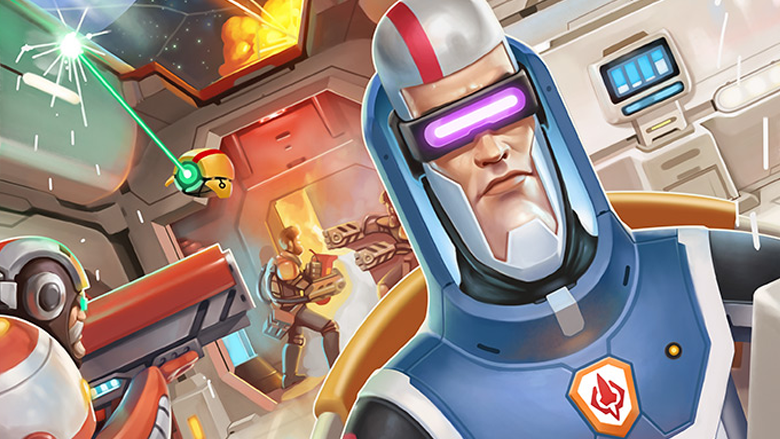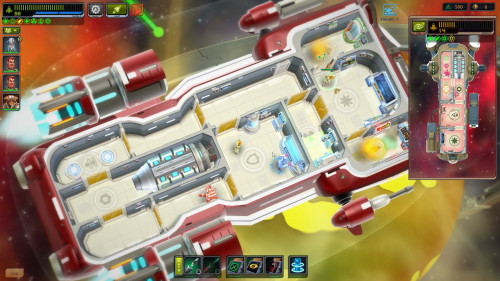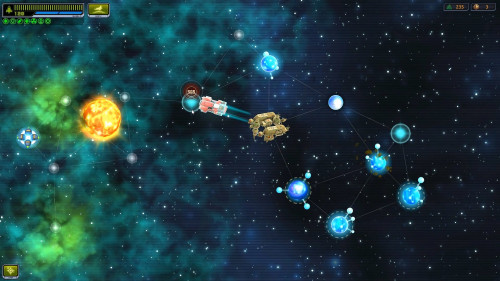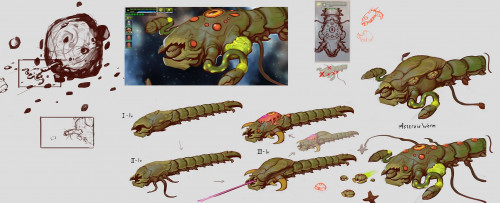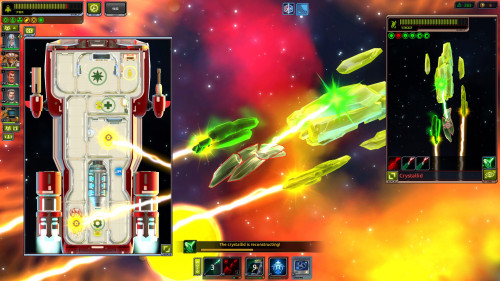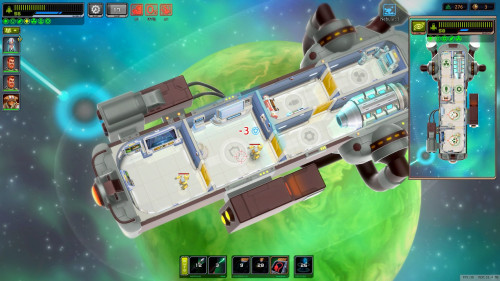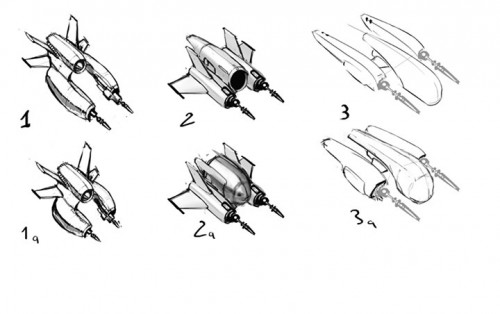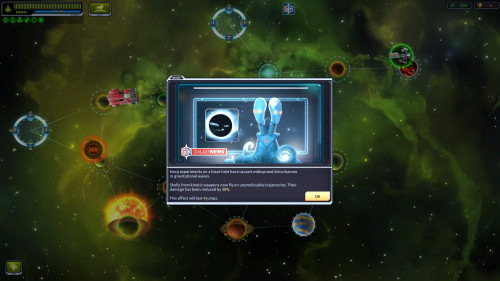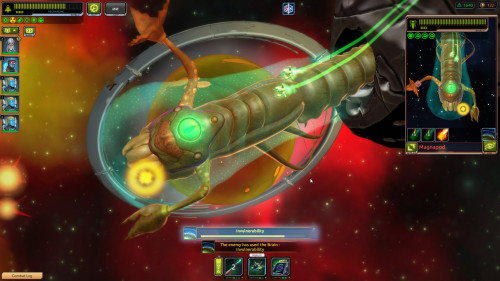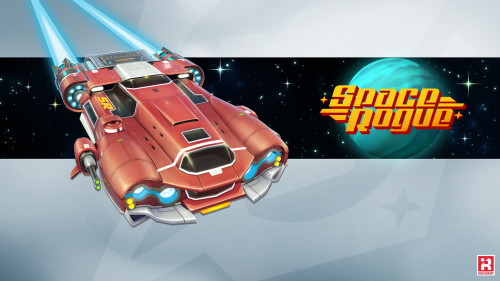About the history of the development of the space “roguelike” Space Rogue, working with the community at the early access stage and mistakes in promotion, – App2Top.ru said Artem Mironovsky, founder and CEO of Red Beat.
Artem Mironovsky
First of all, congratulations on the release! The weight has been lifted from my shoulders. Now that’s it, can I rest?
Thank you for your congratulations! The burden from the shoulders in the case of the game is never fully lifted. You will still need to release some updates. The game is a complex mechanism, sometimes breaks down in unexpected places. Therefore, some work will continue. We will see how people will react to it.
I want to start with a story. I know that Red Beat was formed by people from Kiev Nival, and Space Rogue was your first project. Is Space Rogue the project you left for? Or did you first decide that you wanted to do indie projects, and then you started doing something of your own?
Historical clarification: as developers, we have been around for quite some time.
Our first company was called Symphony Games. It originated in 2004. We produced games, in particular, with 1C, we released the first Expedition-Trophy role-playing simulator in the CIS: Murmansk-Vladivostok, then we started making together with Andrey “Krank” Kuzmin the world’s first commercial Dota, which was called Ownage, in 2006. She died safely in 2008.
We were engaged in a huge number of games and genres, releasing something, freezing something. And in 2011, on the basis of Symphony Games and our team, we built the Kiev division of Nival, which I headed, and the entire core of the Symphony Games team joined it. This is how the Ukrainian Nival appeared, within the framework of which we made Prime World: Defenders.
When we left Nival – again such a core team – we made Red Beat. A new brand. And they began to think what to do.
Space Rogue was not a dream game, because we are all adults now. We looked soberly at the circumstances in which we started. We looked at the market, at some trends that can be seen through the veil. So we came to the conclusion that in 2013, starting with a mobile game, for example, is very risky, difficult and not entirely justified, because the marketing budget was not as draconian as it is now, but nevertheless, it was also seven-digit. Therefore, we decided to focus on some niche product, understanding this niche.
We looked at the niche of midcore and hardcore, because the people who buy such games are quite loyal. And it’s quite interesting to work with them, and the tools to work with them are quite clear. Sergey Galenkin joined us, and, in fact, the idea of Space Rogue itself is his idea, as well as the name he came up with.
We looked at what would happen in 2 years when we planned to release the game. We saw that new “Star Wars” are coming out, we saw that Star Track is coming out, we saw that the sci-fi theme will be pedaled quite strongly in the cultural space, that people will be interested in the setting. And we decided to go there.
We loved and played FTL: Faster Than Light a lot, but we didn’t want to make a clone of this game. Moreover, the guys from Subset Games said that they would not continue this franchise.
But we also saw that FTL fans want similar games, which at that time did not exist, we wanted to take up the development of this sub-genre.
We believe that the guys from Subset Games have made not just a game, but something that developers have not been able to do for a long time. They created a genre.
Before talking to you, I played a little with your project. I got the impression that the project is a casual version of FTL. It’s just that FTL has a very high entry threshold, and you have FTL-lite.
FTL had a very high entry threshold due to the fact, at least, that it did not have a forced tutorial, understandable to all recent generations of players, but was placed in the main menu.
Plus, it’s quite a hardcore game, a bagel with perma-death, and also a tactical spaceship simulator with a bunch of actions, with a controlled base and much more.
This is a niche challenging game.
We understood this, but we didn’t have a goal to make casual FTL, we had a goal – to make a kind of evolutionary thing based on a new genre, a set of its mechanics, which, taking successful things, would add features there, which from our point of view were not enough and which were asked by people who played FTL, ideas, which were offered by the players and the fan base.
A lot of things were just asking for it. For example, we made a sandbox in Space Rogue, a “sandbox”. We have it in the form of a separate game settings page. With this sandbox, you can do anything: you can make the galaxy small, you can make it tridsatisector, and it will take 100 hours of gameplay in one session, you can make any balance of ships on it. Then you can copy the link to the generated map, send it to a friend and he will play it.
We have made improvements to the systems. We don’t have a spaceship simulator – we have a spaceship captain simulator. It is important. We divided our crew – if in FTL it was random dudes who did some very understandable things, then in our case there are races. These races have their own characteristics. We have a division into engineers, warriors and a captain. Captain mainit compartments, improving their work, engineers fix and extinguish fires better, warriors are cool in boarding.
Accordingly, we have four game ships (by the number of races), which are also completely different in tactics. This was also the case in FTL, but we believe that we have balanced this idea better, in particular, due to the fact that you are now a crew manager, unlike FTL. They get experience, they get pumped, you develop them. Crew management is something that, in principle, was not in FTL.
In addition, we have a cartridge system – this is an on-board computer that has active skills. This added a whole layer of gameplay – something that was not in FTL.
We have added mini-games in the form of resource extraction. We added space monsters, bosses and all sorts of hazzards, which in principle were not in FTL.
FTL why did it turn out to be a bagel? There were few guys and, apparently, there were not very many resources either. They had to make restrictions with the catch-up fleet so that the player could not engage in exploration. We wanted the player to do research in Space Rogue. That is, this is a game about space exploration, about the game of events.
I played FTL and your project. And I was impressed by your project with the approach to graphics, to the atmosphere, I liked it much more. But what surprises me now is that users give FTL very high marks, and Space Rogue is not so warmly received, despite a large number of cool innovations and a much better visual approach. Why is that?
It’s an objective fact that we don’t have very good reviews. We made a number of mistakes, and quite serious mistakes that were related to objective and subjective factors. I would highlight three points.
First, we went into early access a long time ago. We came out at the end of April 2015, that is, we have been in early access for more than a year. Moreover, we went out there with a technically unprepared game, which at that time, in fact, was a more beautiful clone of FTL, which immediately “flooded” the community.
We thought that people want a beautiful FTL, and if we give it to them, they will light up and help us make FTL dreams while it is in early access. So we wanted to attract people much earlier so that this game would be made for them. But this hypothesis did not work as we expected. Accordingly, we picked up a lot of criticism. We were accused of being just stupid cloners, and we have a goal just to make money on the fame of the guys who made FTL.
The second factor is that, on the advice of quite reputable people, we set a high price at the start.
And how much was the price at the start?
We bet $35. We were given an example of other indie niche projects that put a high price too, we were strongly convinced that this is normal and logical. However, it was a big mistake. We were forced to lower the price, but we also received our share of criticism.
Have you reduced it to $19?
For the CIS, the game costs $6.99, and for the world – $19.99.
Well, the third factor – on September 13 of this year, Steam revised the rating system. The game had 74%, was in a positive rating, but a certain number of reviews were canceled, and it collapsed in mixed. Such a gift from Steam right before the release.
The system of this innovation lies in the fact that earlier reviews were taken into account, which were written by people either from the purchased version or from the key version, and an overall rating was obtained. After the innovation, the people who received the keys from the sweepstakes at the contests, those people who received the pre-keys, those people who received the keys somehow and wrote these reviews, were left out of work. And we slipped into mixed, which, from our point of view, is not very fair.
I understand these keys were a “hole” from the point of view of the Steam system. But in our case, these were fairly honest and cool reviews, which for some reason are now not taken into account.
These are the three main factors. Of course, there were many indirect ones. But you can’t tell about everything, because the development process involves all sorts of experiments. We rolled out balances that everyone liked, then rolled out balances that everyone didn’t like. Balancing a bagel with so many hours of gameplay and replayability is very difficult.
From a commercial point of view, did such an early exit help? Now the point of view is very popular that if you don’t have enough money to finish the game, you put it in early access, and you start to drip loot. From this point of view – did the early release help?
This is probably a false statement. I don’t know very many games that have gone into early access and earned some cosmic money. From what comes to mind – only the Kerbal Space Program, some other games … And it should be emphasized that these games were released a long time ago.
Those games that are now coming out in early access, except, probably, ARK: Survival Evolved, did not collect more or less significant cash, because early access as a tool stopped working. A lot of reviewers and journalists don’t work with early access. Therefore, the visibility of such projects is much lower. Among other things, a very small part of people on Steam buy games in early access, because Steam has an unconquerable exploit that I don’t know how they will solve. These are seasonal discounts. And this is such a harvesting from the player’s point of view – many people just collect endless vish-lists, waiting for the lowest possible prices. Therefore, early access is rudimentary at the moment. He didn’t bring us any significant money, that’s for sure. But we are still very happy that we were in it, because in the year that has passed since the release of early access, the game has changed dramatically. The version that went into early access and the version that went into release are two completely different games both in terms of content and gameplay.
Is it thanks to the community?
Sure. We constantly listened to people – even negative, even angry, even irritated comments, because we understood that this was not out of a desire to offend an unhappy developer who sits at night with red eyes. We understood that people want a certain product, they pay money, they are focused on some expectations, and our task is to give them this. We are very grateful to the community! 30 percent of the people who wrote negative reviews have now changed them to positive ones.
Wow. Was there any formalized work with the community? How was it built?
Yes. We have a community manager – Alexander Mamzurenko, a wonderful guy. He is the only one who works with the community, but we are not such a huge company to support an entire department. On the other hand – let’s be honest – we didn’t have hundreds of thousands of players on early access. And there weren’t even tens of thousands. Therefore, it was quite easy to communicate, there was enough time to do it through Facebook and through Steam tools.
And how was the decision made at all – to add a specific feature or not?
First of all, of course, when the game is being made, there was a certain backlog, versioning and stage-by-stage updating of builds, which we followed. There was a certain pool that was developed by our designers during production or pre-production – something that satisfied certain gameplay pillar and USP that we put into the product. On the other hand, this was complemented by the most relevant requirements of the community. When you see hundreds of reviews about a particular feature, you know whether you guessed right or not, leave it or throw it away. If out of two hundred comments, one hundred and fifty say the same thing, then they are right. Such things, of course, were promptly changed, added or done.
And what was thrown out? Were there any things that you initially really wanted to do, but you understood that it would hurt? And the users also said to throw it out? Were there any bright cases?
With the balance, such things were for sure. With features – I can’t remember now. But I can tell you about the features that we planned to implement and did not. These were two fairly powerful jokes that would be useful to the community. Yes, and the game would benefit. We made a sandbox, but we planned to make a full-fledged workshop instead. We wanted to give people an editor that would allow them to make their own ships and crew, generate text events themselves and release mods. That is, there had to be a mod-maker that would give Space Rogue an extra hundred years of life, because people would make a million interesting pieces. It didn’t work out and they didn’t. For a number of temporary factors.
Will it?
Let’s look at the reaction of people after the release. If everything goes well, then why not. We have everything for this. In fact, a lot of things we planned and did not do. I won’t tell you everything, so as not to overload.
As for the community, the most critical thing was the balance and micro-settings of the game, because, again, this is a “bagel” with a huge number of variables. This is a ship, this is a team, these are planets, combat, weapons, loot, shops, money, a dual currency system, and so on. A lot of variables, hardcore game. And minimal changes in ships, races, or damage from solar activity on the star – led to collapses of the game scale. Therefore, naturally, everything changed. Offhand, I can’t remember any big thing that we threw away. But they definitely were.
I looked at SteamSpy – you now have about 4 thousand copies sold. How do you plan to promote the game?
Steam is a marketplace, these are stores and shelves on which goods are stored. There is a certain traffic of buyers who look at these products and choose relative to their budget and build a purchase plan. The advertising of this store is also quite limited by methods.
Firstly, these are influencers who lead people – reviewers, advertisers, the press, bloggers, on the one hand. On the other hand, these are big events like conferences or exhibitions, where developers usually communicate with their audience – which we did not do – and attract attention. Some are doing some Kickstarter campaigns to gather an audience in the early stages. In our case, these tools primarily concern communication with people who influence the opinion of the players.
That is, now we are working with YouTubers, with streamers, so that they start playing your project.
Yes.
By what forces was the project done? You said it was a small team, but the concept of a small team varies for everyone.
When we started Space Rogue, there were 8 of us. At the peak of development, there were 12 of us, and in the last year 5 people made the game.
How many copies of the game do I need to implement in order for the project to pay off, so that you know that we are doing the next one?
Are you sitting right with Excel? (laughs)
We are not a public company, we cannot shine such things. A lot of copies need to be sold.
In any case, it will not affect whether we will or will not do something further. We will anyway. Red Beat is not only Space Rogue, we have other projects in development, we have an outsourcing department, we have some resources that we can use to experiment. Besides, we have been playing games for a very long time. Somewhere successful, somewhere unsuccessful, but nevertheless, this experience is also there. Whether the project is successful or unsuccessful, it always falls into the piggy bank of experience. Sometimes experience brings money, and sometimes experience costs money. In both cases, we learn.
I specifically and the whole team are not ashamed of Space Rogue. We are proud of this game. I personally have 362 hours of playing Space Rogue, and I, as a person who is not the target audience of FTL, am now catching a grand buzz from what I can do in this game. This game can be replayed endlessly. I’m not saying this from the point of view of PR, but solely as a casual player. I like everything about her. Whether it will be a financially successful game or not, I am at least glad today, because we managed to drag it. We did not work in the best socio-cultural conditions, and the beginning of development coincided with the beginning of all the events that are happening here. There was a continuation of these events, and a lot of stressful stories, but we nevertheless did it. And I am very happy that this work has not been lost, that it has been realized.
It’s cool, and that’s the most important thing. While I was playing, I wanted to ask another question. I got the impression that stylistically and atmospherically the game has learned a lot from the “Secrets of the Third Planet” and from the “Space Rangers”. To the one who invented the style, great honor and respect! How did you come to this style?
Thank you very much! It will be very nice to hear from our artists.
We originally wanted to make the game retro-futuristic. We understood that this limited the audience. But on the other hand, doing something like Everspace would be costly and would not solve the gameplay tasks that the game faced. We still have a game about schemes, tactics. A kind of cosmic chess with randomness and perma-death. And more rockets. That’s why we looked at retro-futurism. However, we initially wanted to do a style in retro-futurism of the 60s. You know, all these space Cadillacs and other Elvises. As a result, they made the end of the 70s. And when they made music… By the way, Vlad Isaev wrote the music here, he is a very, very cool and talented composer who now lives in St. Petersburg. Our soundtrack is even sold separately on Steam, from my point of view it deserves special respect. So, when we were writing music, we were looking at Solaris Tarkovsky, as a musical reference. And the atmospheric reference, actually. Therefore, the game was created based on the fact that we are making a retro-futuristic thing that people who watched The Secret of the Third Planet in childhood will love, if we talk about the CIS. And we think we did it.
Thanks for the interview! Congratulations again on the release.

